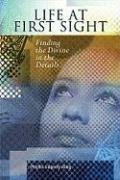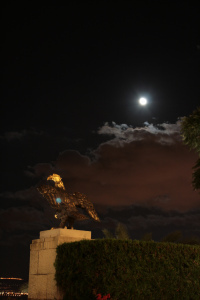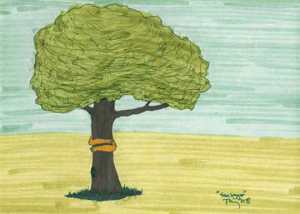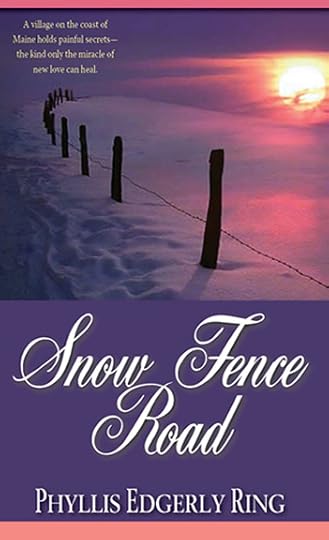Phyllis Edgerly Ring's Blog, page 51
August 19, 2013
Vision: the Eye of Oneness
 The most subtle and most difficult transition for us to make is to move from the use of human traits by the human nature to the employing of divine qualities by our spiritual nature. This has been described as the longest journey — from the mind to the heart.
The most subtle and most difficult transition for us to make is to move from the use of human traits by the human nature to the employing of divine qualities by our spiritual nature. This has been described as the longest journey — from the mind to the heart.
The human nature, using the limited vision of the rational mind, doesn’t have the capacity to perceive divinity and easily makes the mistake of believing that we, ourselves, are the source of such spiritually motivated actions as generosity, mercy and justice. This misconception leads inevitably to arrogance, the hallmark of the ego, and we cannot approach God with what is essentially the exact opposite of the attribute that is required for this — humility.
In his book Love, Power and Justice, author William Hatcher notes that “We are the only creatures of God who have the capacity to be aware of our dependency on God.” 
It is the spiritual nature that possesses the capacity to recognize that the amazing virtues of love, mercy, kindness originate with God and that we’re privileged to use these infinite attributes that God has placed within us in infinite combinations to enhance our lives. We can remember, when someone thanks us for being kind or merciful, to acknowledge in our heart the divine source of kindness or mercy. In this way we can grow in humility instead of arrogance. We can carry in our awareness the source of these qualities and thus draw closer to that source.
The animal and human nature each ask the same question in all our interactions with the world: “Do I eat it or does it eat me?” The human nature wears better clothes and couches the same question in more sophisticated language, such as, “Do I win or do you win?’”or “Who controls who in this relationship?”
 The spiritual nature always asks the same question: “What do I need to do to approach the Divine?” Or perhaps more specifically: “What act of service do I need to give or receive in order to approach the Divine?”
The spiritual nature always asks the same question: “What do I need to do to approach the Divine?” Or perhaps more specifically: “What act of service do I need to give or receive in order to approach the Divine?”
Excerpted from With Thine Own Eyes: Why Imitate the Past When We Can Investigate Reality?, coming soon from George Ronald Publisher.
Art work courtesy D. Kirkup Designs / https://www.facebook.com/KirkupDesigns


August 17, 2013
Awareness: spirit of a new and wondrous age
As the edits for With Thine Own Eyes: Why Imitate the Past When We Can Investigate Reality? arrive from George Ronald Publishing, I re-encounter in its pages so many themes dear to my heart.
They suggest things like: “In this new and truly wondrous age there’s a door that’s been opened wider than heaven and earth through which we’ve been invited to pass.”
Do I believe that? Do I live and act as though I do?
Am I ready to embrace the truth that my deepest reality, that for which I’ve been created, “is a presence and power in whose light fear and the trappings of mere survival disappear like shadows?”
The blind imitation of the past that my human nature can’t help but fall into “veils me from the principles that are the light on my path and the very spirit of this age”.
Experience has certainly shown this to be the case, without exception. It’s a little sad that I’ve repeated that experience so often, but so I have, and there it is. What have I learned from it? What have I believed that has led me to do that? Why?
“How does coming to understand who it is we are created to be change the way we see ourselves, each other, and our world?” That’s definitely a question to take into the day, and every possible moment.
Perhaps this understanding welcomes in a new way of thinking that evolves out of love and attraction toward the latent spiritual gifts in myself and others that are waiting to be revealed. Do I remember that I can always choose this love and attraction over the kind of near-instinctual reactions that arise from a fear that’s rooted in preoccupation with physical survival? That crippling fear has kept humanity, human thinking and our greatest possibilities entrapped for eons.
Fact is, I’m not going to survive physically forever, nor is anyone else. (I wonder why that aspect of life receives so very much attention? Might it be that some believe that’s all there is?)
I might, however, have the chance to begin living in an eternal kind of way as I invite and employ what lasts forever – those gifts waiting within, like gems in a mine.
“Only our spiritual nature can look beyond outward appearances, first impressions and personality flaws to see `all the virtues of the world of humanity latent within’ ourselves and each other,” I’m reminded. It’s this core part of my self that has the capacity to “perceive honor and nobility in every human being”, including this one who looks back from the mirror each day.
 For the first time, the realization of human oneness, in reality, is within our grasp. And each of us is invited to discover our unique, true identity as a soul, as well as our unique purpose, and our unique way of solving problems.
For the first time, the realization of human oneness, in reality, is within our grasp. And each of us is invited to discover our unique, true identity as a soul, as well as our unique purpose, and our unique way of solving problems.
“Happy are those who spend their days in gaining knowledge, in discovering the secrets of nature, and in penetrating the subtleties of pure truth,” ‘Abdu’l-Bahá has reminded in a book called Some Answered Questions.
Happy indeed.
With Thine Own Eyes: Why Imitate the Past When We Can Investigate Reality?, co-authored by Ronald Tomanio, Diane Iverson, and Phyllis Ring, will be released by George Ronald Publishing.
August 15, 2013
The art of knowing what to overlook
“The art of wisdom is the art of knowing what to overlook.”
When I turned over this quote of William James’ on my calendar, it struck a chord. I think a lot about how I can respond to life more consciously. It’s too easy to default to the fight-or-flight reaction that a barrage of “urgent” messages can prod us into, whether they’re coming from network news or our overfull inboxes.
To achieve quality of life, we sometimes have to follow James’ wisdom about NOT reacting, letting things go by — even doing nothing. One neighbor’s experience provides an example of how much trouble we can save ourselves when we do.
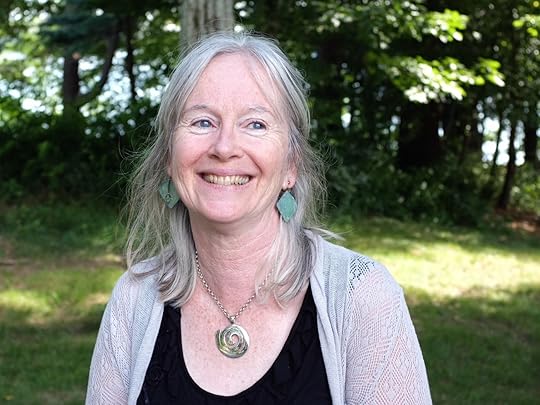 BoomerCafe graciously gave me the space to share this story this week.
BoomerCafe graciously gave me the space to share this story this week.
You can read the rest at: http://www.boomercafe.com/2013/08/12/the-story-of-how-a-skunk-became-a-symbol-of-baby-boomer-wisdom/
The story is excerpted from Life at First Sight: Finding the Divine in the Details. Find more information about that at:
August 12, 2013
How it all gets better, and better
 Our spiritual nature has a value system that places priceless relationships above any object or hoped-for outcome.
Our spiritual nature has a value system that places priceless relationships above any object or hoped-for outcome.
But the human nature, if left in charge, does not.The sign that we’re in a situation that requires a shift from the eyes of our human nature to the vision of our spiritual one is when we find ourselves focusing on the imperfections of others to such an extent that we experience an increasing intensity of negative emotions that, in turn, causes deterioration in personal relationships.
The only escape from this vicious cycle is to change what we see and elevate our perception and begin looking at others with the sin (imperfection)-covering eye of the spiritual nature. The spiritual nature doesn’t dwell on perceived imperfections but instead seeks the missing spiritual attributes that the situation is calling for and creates an act of service designed to release those latent virtues. They exist within the heart of every one of us.
When that happens, the destructive negative emotions and imperfections begin to dissipate. They are, after all, merely perceptions and `decisions’ of the mind or human nature, and the resulting emotion is the energy of those thoughts in motion.
However, in the survival-motivated blind imitation that is the lower nature’s customary behaviour, our mind and emotions can liken the current experience to one that has registered as negative in the past. In order to truly investigate the reality of the matter, we need the spiritual nature and its vision to come into the driver’s seat, to interrupt this reflexive imitating of what happened — or what we perceive to have happened — in the past. If we are unwilling to do this, we will remain prisoners of that past, and of what, in essence, is actually an imagined past, the perspective of the mind alone.
 A sign that we’re progressing away from imitation towards investigation is that we will feel negative emotions being replaced by positive ones. There will be a noticeable improvement both in the way we ourselves feel and within the tone of the relationship.
A sign that we’re progressing away from imitation towards investigation is that we will feel negative emotions being replaced by positive ones. There will be a noticeable improvement both in the way we ourselves feel and within the tone of the relationship.
Excerpted from With Thine Own Eyes: Why Imitate the Past When We Can Investigate Reality?, coming soon from George Ronald Publisher.
Artwork courtesy Nelson Ashberger.


August 9, 2013
The rich harvest of feelings
 It’s my pleasure this week to share this Guest Post:
It’s my pleasure this week to share this Guest Post:
The Reunion We Find Waiting
by Eric Mondschein
Being asked to write a guest post proved more difficult than I had imagined. I have a blog, and know I need to be more active about posting my own commentaries and thoughts, not to mention articles on issues of the day.
Here, however, I have been asked to write for someone else’s site, thus not only representing myself, but in a way, her, as well. To complicate matters, if I were writing about a topic, issue, or event, I would tackle it as I normally do: research the subject, gather facts, determine the particular principles that might apply, learn what others have said, then form my own conclusions and put pen to paper – or, these days, fingers to keyboard.
No one makes me write. In professional positions I’ve held over the years, I have been required to file reports, write memoranda, even treatises, but I was never required to publish law-related articles, or write poems. I wrote those because I wanted to.
It certainly was not because I had nothing better to do. The time spent away from family and the activities that were sacrificed along the way attest to that. It was more often a feeling of being compelled to write. Not for others, although most writers do want people to read their work, but to feed a need or a desire coming from within. 
No one makes me post articles, poetry – even recipes — on my blog, though I’ve been struggling to keep up with my postings. It’s not that I’ve been lax, although I am sure that plays a small part. Instead, for now, I’ve felt compelled to write about my experience growing up. The writing is not really so much about me as it is about those feelings and emotions that we all at one time or another share; feelings of joy, happiness, sadness, anger, fear — and yes, loss — that each of us, in our own yet similar ways, do inevitably encounter.
Through this writing experience, I have come to recognize, dare I speak a universal truth, that even in the solitude of writing, we are not truly alone. Our memories of loved ones, friends, and those we admire are always with us, some closer to the surface of awareness than others, but they are there nonetheless.
And if we are really willing to listen, they have much to offer.
You Touched Me
After so many years of building barriers, digging trenches,
Setting stone, and preparing to do battle,
You breached the walls, broke the seals and smashed the locks
Where I had taken refuge.
Your warm smile and gentle words of encouragement
Made me take pause and ponder.
I laid down my sword and shield, and removed my armor.
You touched me where I used to live, and amazed,
I found that I was still at home.
 Dr. Eric S. Mondschein has taught law and education, worked for the US government, published and edited numerous articles and books, directed an award-winning program for the New York State Bar Association, and served as an advisor in external affairs, government relations, security, and analysis of human rights. His book, Life at 12 College Road, is scheduled for release by Something or Other Publishing this fall. To learn more, visit http://soopllc.com.
Dr. Eric S. Mondschein has taught law and education, worked for the US government, published and edited numerous articles and books, directed an award-winning program for the New York State Bar Association, and served as an advisor in external affairs, government relations, security, and analysis of human rights. His book, Life at 12 College Road, is scheduled for release by Something or Other Publishing this fall. To learn more, visit http://soopllc.com.


August 7, 2013
Is There Life BEFORE Death?
Uh, oh.
Just when there are at least three directions toward which my focused attention “should” be going, along comes “a book concept” that decimates my sleep.
This night visitor unscrolls its suggestions somewhere in my head behind my eyes like a 1940s movie projector.
In the morning, I wake to these notes scribbled in the dark:
Title: Is There Life Before Death?
Possible Chapters / Table of Contents:
1. Life: You Are Invited
2. The Favor of a Response is Requested (Must be reading too much historical fiction)
3. You Brought The Gifts With You (But They Need to Be Unwrapped)
4. Prepare for Drama in Unreal Life (Or Just Ignore It)
5. Are You Out of Your Mind? Would You Prefer To Be?
6. Don’t Let Moments Be Postponements
DECISION: No more late-night snacking. (With radishes, no less.)
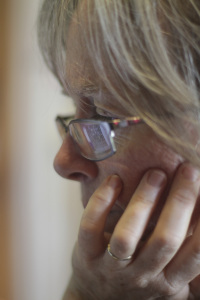 The message in that last “Chapter” is clear, and I’m off to attend to the waiting manuscript that’s been like the neglected child of a single parent with three jobs. No social media for me, for the rest of the week. Maybe the next one, too.
The message in that last “Chapter” is clear, and I’m off to attend to the waiting manuscript that’s been like the neglected child of a single parent with three jobs. No social media for me, for the rest of the week. Maybe the next one, too.
But please do watch for a Guest Post from writer friend Eric Mondschein coming later this week. And if you feel so inclined, tell him hello.


August 5, 2013
Beyond the abyss, and the shadows
What can we gain by sailing to the moon if we are not able to cross the abyss that separates us from ourselves?
This is the most important of all voyages of discovery.
~ Thomas Merton
Most of the shadows of this life are caused by our standing in our own sunshine.
~ Ralph Waldo Emerson
Its fruits, leaves, boughs and branches are, and have ever been, trustworthiness, truthfulness, uprightness and forbearance.
~ Bahá’u'lláh


August 2, 2013
The eternal side of relationships
When we translate the spiritual inspiration we receive into a genuine act of service, our motivation is most likely one of improving our relationships. But something far deeper also transpires, though it may initially go unnoticed. We are bringing out from the latent state of potentiality our true self and purpose.
The genuine acts of service that we have exchanged with another person in this world form the eternal part of our relationship that transcends this material world. The material gifts we exchange with love ones will return to dust, but the love we show them will last forever. 
What is the connection between relationships and the concept of investigating our own reality? The personal investigation of one’s reality is an abstract endeavor and it can be difficult to assess progress. However, the more successful we are in uncovering our true self, the better the decisions we will make regarding our lives and the people in them, which translates into healthier and happier relationships. This will provide us with tangible evidence that we are making progress on the path of service and self-discovery.
 To live to our highest potential, it seems that we need to come into consciousness of our true selves and also to establish a balance between our being and our doing that is rooted in our truest purpose.
To live to our highest potential, it seems that we need to come into consciousness of our true selves and also to establish a balance between our being and our doing that is rooted in our truest purpose.
Co-authors Ron Tomanio, Diane Iverson and Phyllis Ring explore these and related themes in the soon-to-be-released With Thine Own Eyes: Why Imitate the Past When We Can Investigate Reality? from George Ronald Publisher.
Artwork courtesy Tobey A. Ring and Nelson Ashberger.


July 30, 2013
Snow Fence chat
Thanks so much to book-blogger Cath at My Book Chatter
for interviewing me.
Her blog is also offering a goodie-pack giveaway
that includes a print copy of Snow Fence Road ,
 lovely
lovelyhand-painted earrings from jewelry designer Diane Kirkup, bath salts, and yummy chocolate.
Be sure to visit the
My Book Chatter blog and enter.

(link below)
Interview excerpt:
Welcome Phyllis 
Why did you want to be a writer?
Possibly the result of too much time alone in my room as a kid, together with the fact that I come from a family of writers. Stories came and found me and have never stopped. My making the commitment to go the distance and stay with them, learn and grow and be shaped by them, as they take shape, until I discover what they want to show me is what feels like the real practice of writing, for me.
Where did the idea for Snow Fence Road first come from?
I dreamt it, more than 25 years ago. I saw the incident that shatters one character’s life (and remains a mystery full of secrets in the story) just as if witnessing it like a bystander.
How did you choose the genre you write in?
I’ve always yearned to write about the many-layered complexity of relationships, the recognitions we reach within them about ourselves and others and life, which can set us free, or keep us imprisoned — and the growth and redemption that are the goal in everything of value in life, and in fiction, for me. I’m interested in how souls meet what it is they encounter and work with it and through it in order to recognize and claim whole new depths in themselves and their lives, and accompany others as they do the same. For this book’s story, which explores how compassion heals others and ourselves, sweet, inspirational romantic fiction was the route. Also, the book has a very regional flavor, as well as a small-town one, both vital elements, for me. By contrast, my current novel-in-progress has historical elements, set in Nazi Germany, as well as contemporary, women’s fiction, and generational-story ones.
Read the whole interview at: http://mybookchatterchat.blogspot.co.nz/2013/07/interview-and-giveaway-with-author.html


July 29, 2013
The root of everything
Why are you so afraid of silence,
silence is the root of everything.
If you spiral into its void,
a hundred voices will thunder
messages you long to hear.
~ Rumi
It is an axiomatic fact that while you meditate you are speaking with your own spirit. In that state of mind you put certain questions to your spirit and the spirit answers: the light breaks forth and the reality is revealed.
~`Abdu’l-Bahá
Photos courtesy Saffron Moser and Nelson Ashberger.







